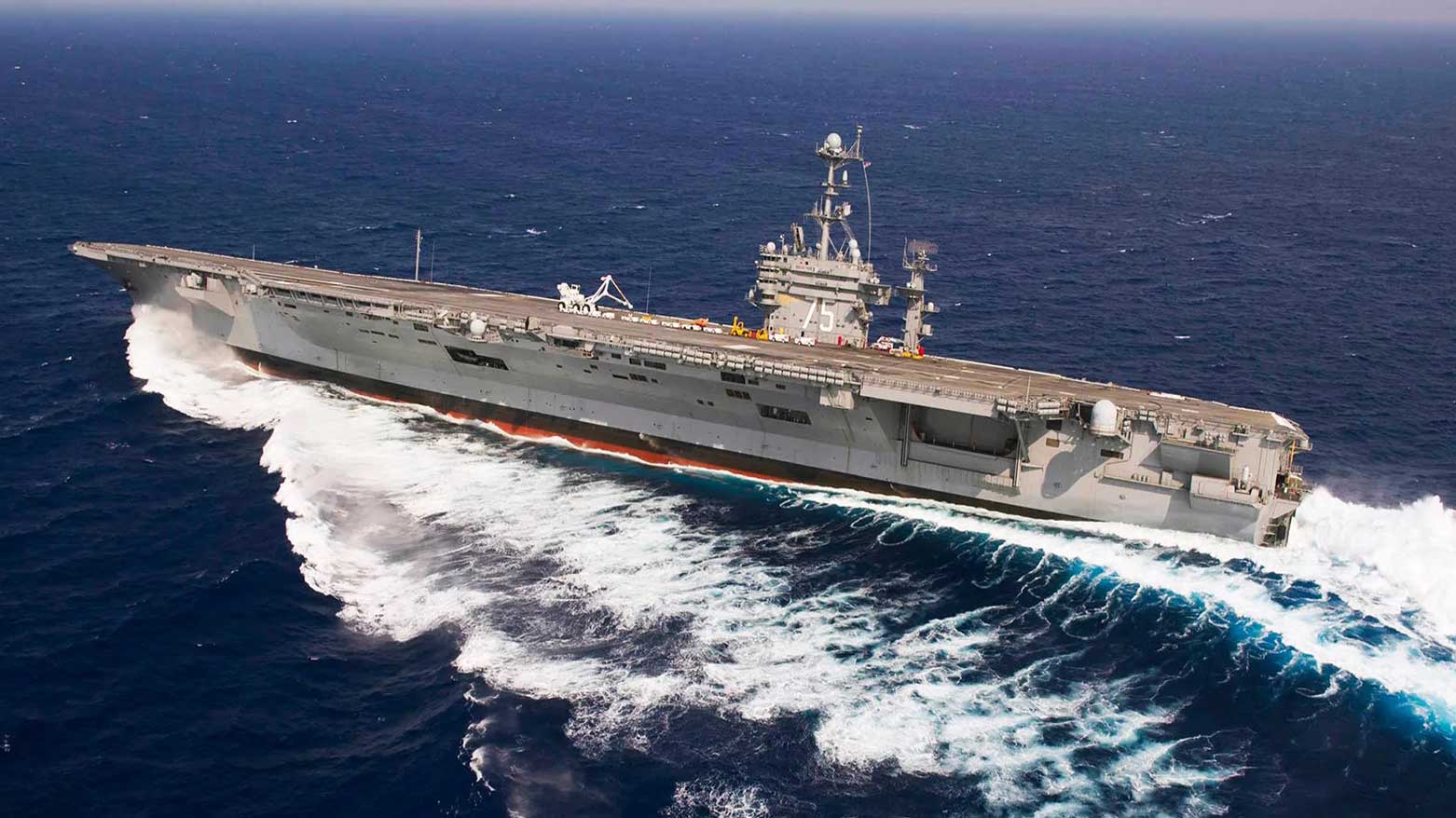CENTCOM Loses Fighter Jet to Houthi Attack, as Conflict Continues
The plane’s loss followed just one day after CENTCOM listed its achievements in the conflict with the Houthis.

WASHINGTON DC, United States (Kurdistan 24) - The U.S. announced on Monday that an advanced fighter jet had fallen into the sea, as the aircraft carrier on which it was being towed was forced to maneuver sharply to evade an attack by Yemen’s Houthis.
Since Hamas’s October 7, 2023, cross-border assault into Israel, the Iranian-backed Houthis have been attacking shipping in the Red Sea and Gulf of Aden, ostensibly in support of Hamas in its conflict with Israel.
The U.S. has avoided direct conflict with Iran. Rather, since mid-March, the Trump administration has pursued an intensified military campaign against the Houthis.
The Houthis are given to bombastic rhetoric, and many of their claims of success are not credible. But causing the loss of the Navy’s F/A-18 Super Hornet fighter marks a major achievement. Such a plane costs $60 million.
The loss of the plane follows just one day after CENTCOM provided a list of its achievements in its conflict with the Houthis, while the Houthis charged on Monday that a U.S. missile strike had hit a detention center holding African migrants, killing at least 68 people.
Finally, on Monday, the U,S, also sanctioned three ships and their owners that deliver refined petroleum products to the Houthis.
Loss of U.S. Fighter Jet on Monday
As the U.S. Navy explained, an F/A-18 Super Hornet fighter jet fell off the aircraft carrier, the USS Harry S Truman, on Monday, while it was sailing in the Red Sea.
The aircraft carrier came under Houthi attack, as the Navy explained. While that was happening, “the F/A-18E was actively under tow in the hangar bay.”
But “the move crew lost control of the aircraft,” and “the aircraft and tow tractor were lost overboard,” it said.
One sailor was lightly injured in the incident.
U.S. Claims of Success the Day Before
The day before, however, CENTCOM issued a statement listing its achievements against the Houthis.
In reporting on the CENTCOM statement, the Associated Press noted the irony of CENTCOM publishing such a list, while “the Trump administration negotiates with their main benefactor, Iran, over Tehran’s rapidly advancing nuclear program.”
In the 1980s, during the Reagan administration, the U.S. developed the concept of state-sponsored terrorism and came to see major attacks as a form of proxy war. It responded to major terrorist attacks by punishing the state that it believed was responsible.
That policy pretty much ended major terrorist attacks against the U.S.—until Bill Clinton became president. As president, Clinton transformed the U.S. understanding of major terrorist attacks.
Clinton turned terrorism from a national security issue, with the focus on determining state sponsorship, into a law enforcement matter, with the focus on the arrest and trial of individual perpetrators.
It was claimed that there was a new kind of terrorism that did not involve states. But this new understanding was, arguably, quite flawed and contributed to the return of major terrorist attacks, because the party most responsible—the terrorist state—ceased to be held accountable and punished.
Read More: Revisiting Ramzi Yousef’s terrorism: World Trade Center bombing and Philippines plane bombing plot
In the statement it issued on Sunday, CENTCOM said that since the start of its current military campaign against the Houthis, which it has named Operation Rough Rider, CENTCOM “has struck over 800 targets.”
“These strikes have killed hundreds of Houthi fighters and numerous Houthi leaders, including senior Houthi missile and UAV [Unmanned Aerial Vehicle—i.e. drone] officials,” it added.
“While the Houthis have continued to attack our vessels,” CENTCOM’s statement continued, “ballistic missile launches have dropped by 69%,” while “attacks from one way attack drones have decreased by 55%.”
Yet, as noted above, none of that prevented the loss of the Navy’s Super Hornet fighter jet the following day.
Houthi Claim of Strike on African Migrants
On Monday, the Houthis announced that an overnight U.S. missile strike had hit a detention center holding African migrants. At least 68 people were killed in the attack, while dozens more were injured, the Houthis said.
CENTCOM responded with a statement saying that it was aware of the Houthis’ charge, and “we are currently conducting our battle damage assessment and inquiry into those claims.”
The strike occurred in the Houthi stronghold of Saada in northwest Yemen, not far from the border with Saudi Arabia. A Reuters reporter took video and photographs of the scene, showing the partially destroyed building, with paramedics carrying the injured away on stretchers.
The Washington Post cited human rights groups, explaining that Yemen “is a key route for African migrants undertaking the perilous journey over the Red Sea from the Horn of Africa to Saudi Arabia and the other gulf states.”
Under the Trump administration, U.S. strikes on the Houthis have led to an increase in civilian casualties in Yemen, prompting criticism from Democratic congressmen and others.
U.S. Sanctions on Three Companies
Finally, the U.S. Treasury Department announced sanctions on three ships and the companies that own them for providing refined petroleum products to the Houthis, whom it described as “part of the Iranian regime’s network of terrorist proxies and partners.”
The sanctioned companies include two companies registered in the Marshall Islands: the Zaas Shipping and Trading Company, along with Great Success Shipping Company.
The Mauritius-registered Bagsak Shipping Inc was also sanctioned.
